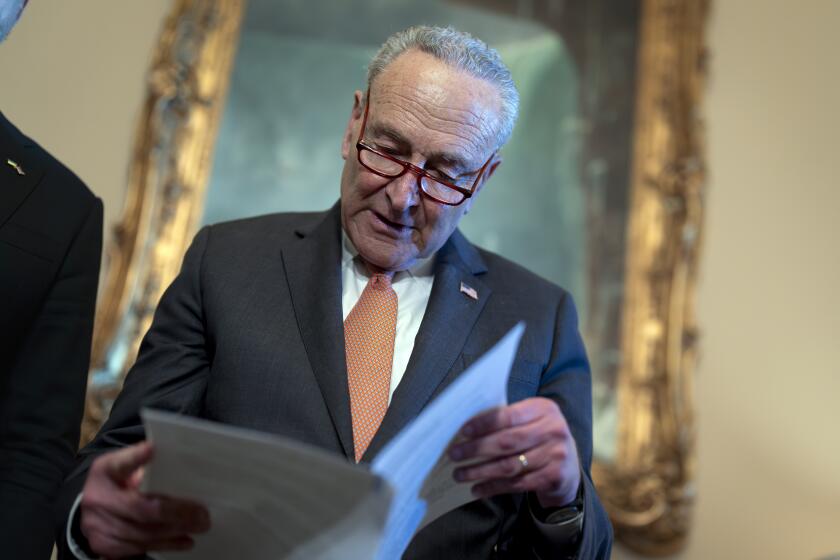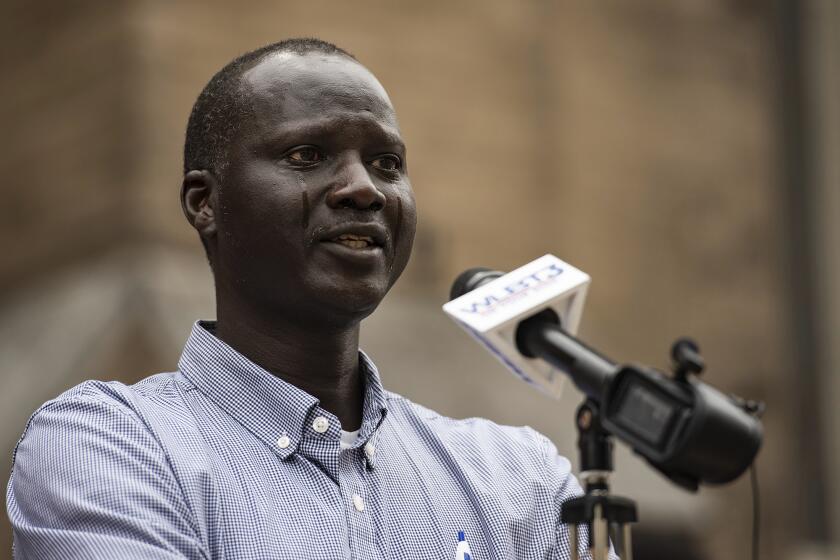The worm in the apple: Public education without financial literacy
Jim Chilton is CEO of The Society for Financial Awareness (www.sofausa.org), a San Diego nonprofit he founded in 1993. He is writing a guest column for the U-T as part of National Financial Literacy Month.
As a father of five kids who are grown, gone, and now doing their thing, finding their way, I look back and give thanks for an educational system that taught them many things. Through math, science, computer technology and more, they learned critical thinking.
However, as they got into the real world, I’ve noticed their cellphone has replaced their calculator and they haven’t touched a test tube since high school. So the question becomes where does a majority of their time, focus and energy go on a day-to-day basis? Money! Since most of them are in their twenties, it would be safe to say, that God willing, and the dam doesn’t break, they have a good 60 years or 720 months, or 21,900 days to go dealing with financial issues. Just like us, nothing special about this, or is there?
School districts across America, overseeing kids K-12, build, create, rollout curriculums, approved by the states and the federal government that deal with “core” subject matter — classes that are essential to developing our youngsters with tools, ideas, and concepts to live out, fulfilling their lives.
Want to know a head scratching reality? Financial literacy courses – though absolutely a must in our daily lives dealing with the plethora of financial issues, concerns, hopes, dreams, and solutions to our way of life – is NOT included as a “Core” subject matter. Here and there, financial literacy is cubbyholed as an “elective” course, a choice as a non-essential class. Again, how is it that we, as a civilized society, can deal with so many issues that fire up the engine of democracy, yet completely ignore an essential life skill necessity such as financial literacy? Truly, bewildering.
Briefly, let’s look at some staggering realities that continue to ravage the average American:
- Student loans are now higher than credit cards and automobile loans combined.
- Discretionary income (money left over after bills are paid) is becoming a rare reality to many.
- Opioid dependency is becoming a national epidemic trying to treat depression, suicide, and many other afflictions generated by stress.
Do note, the common denominator here — money.
To look at a local, positive item, UCSD rolled out a student campaign for all of April. They are promoting many financial literacy issues with various speakers on many crucial, viable, practical subjects that will allow their students the rare opportunity to embrace and learn about money.
Michele Ojeda, UCSD’s Scholarship/Special Programs coordinator, unveiled this program to the student body this month. It is this type of event that fits within April’s theme across America as National Financial Literacy Month. By UCSD leading out in front, with a viable program centered on the essential financial needs of their students, we all should take notice. It is actions like this that keep the word “higher” in higher education. It’s a great investment into their young adults.
To date, sad to say, our country continues to create generation after generation of financial illiterates. Why? Because this financial boot camp of basics — budgeting, credit cards, savings, investing, taking out a loan, importance of a will, purchasing the correct type of insurance -- never got put into place by the schools nor shared or taught by parents.
It is time to look at our kids or grandkids, and not just nod your head in agreement to this issue. No, it’s time to go to your elected officials; go to your school board; make your opinions vocal – do something to let leadership know, we cannot continue this circus act of happy talk, while our next generation grows up like most of us in financial dealing — totally clueless. We as Americans can and should be better than this.
Also:
Retirement: Closing one chapter and opening a new one
Money: Saying “no” or “not now” could be a life-changer
Why you need a financial plan for your money — and happiness
Business
Get U-T Business in your inbox on Mondays
Get ready for your week with the week’s top business stories from San Diego and California, in your inbox Monday mornings.
You may occasionally receive promotional content from the San Diego Union-Tribune.



